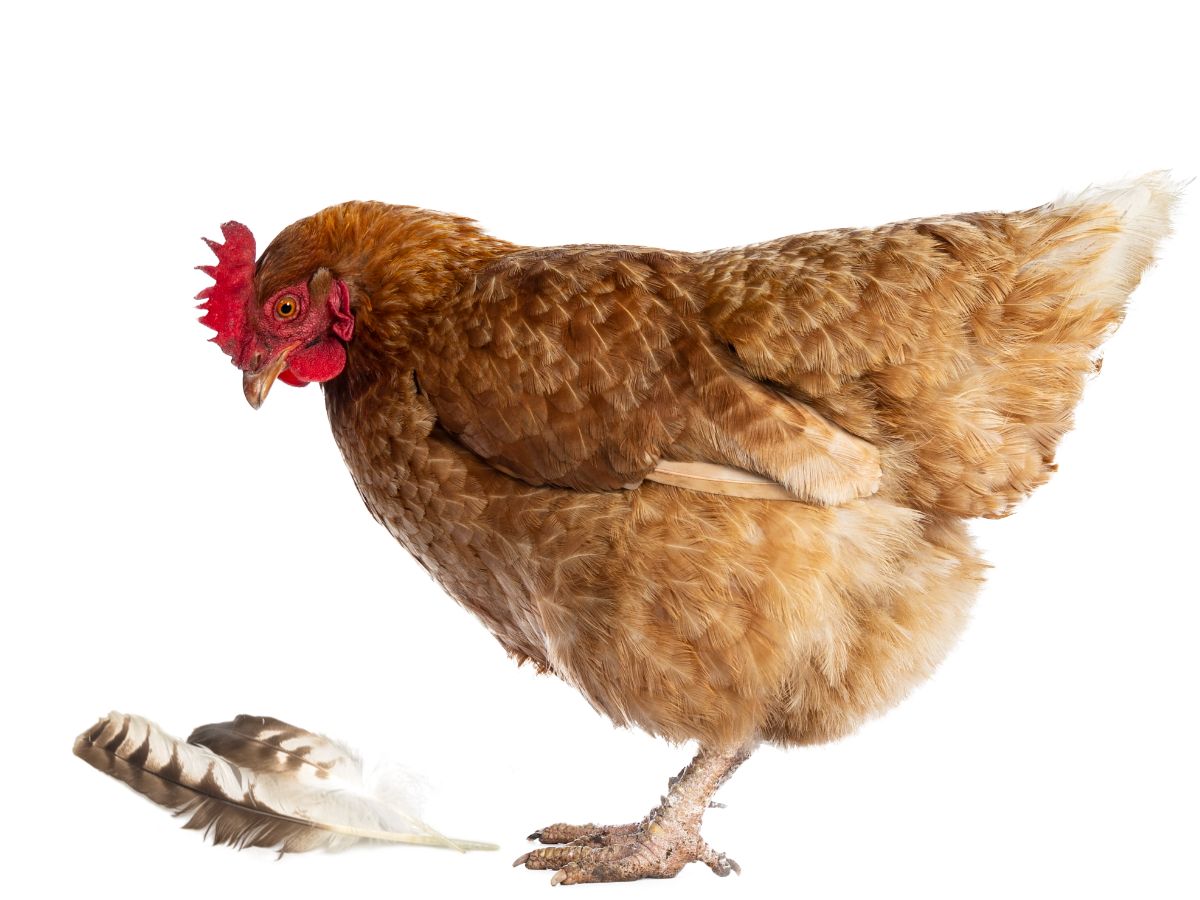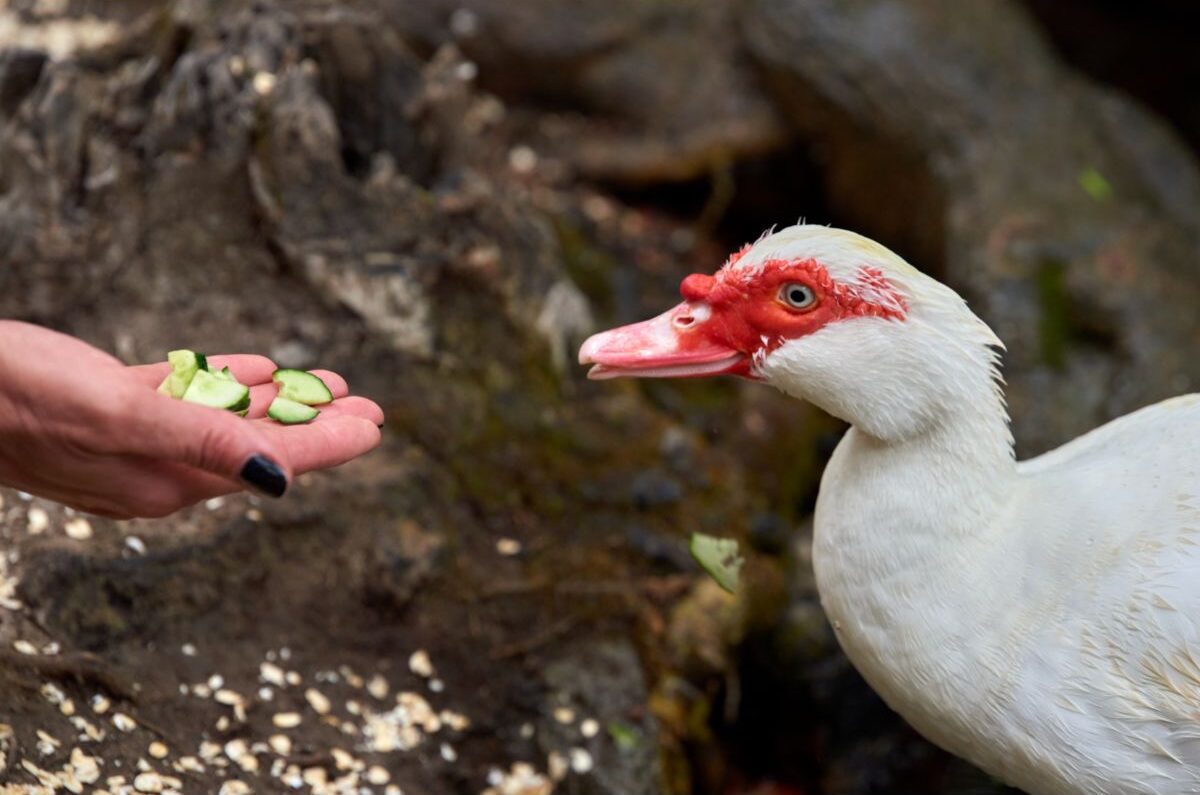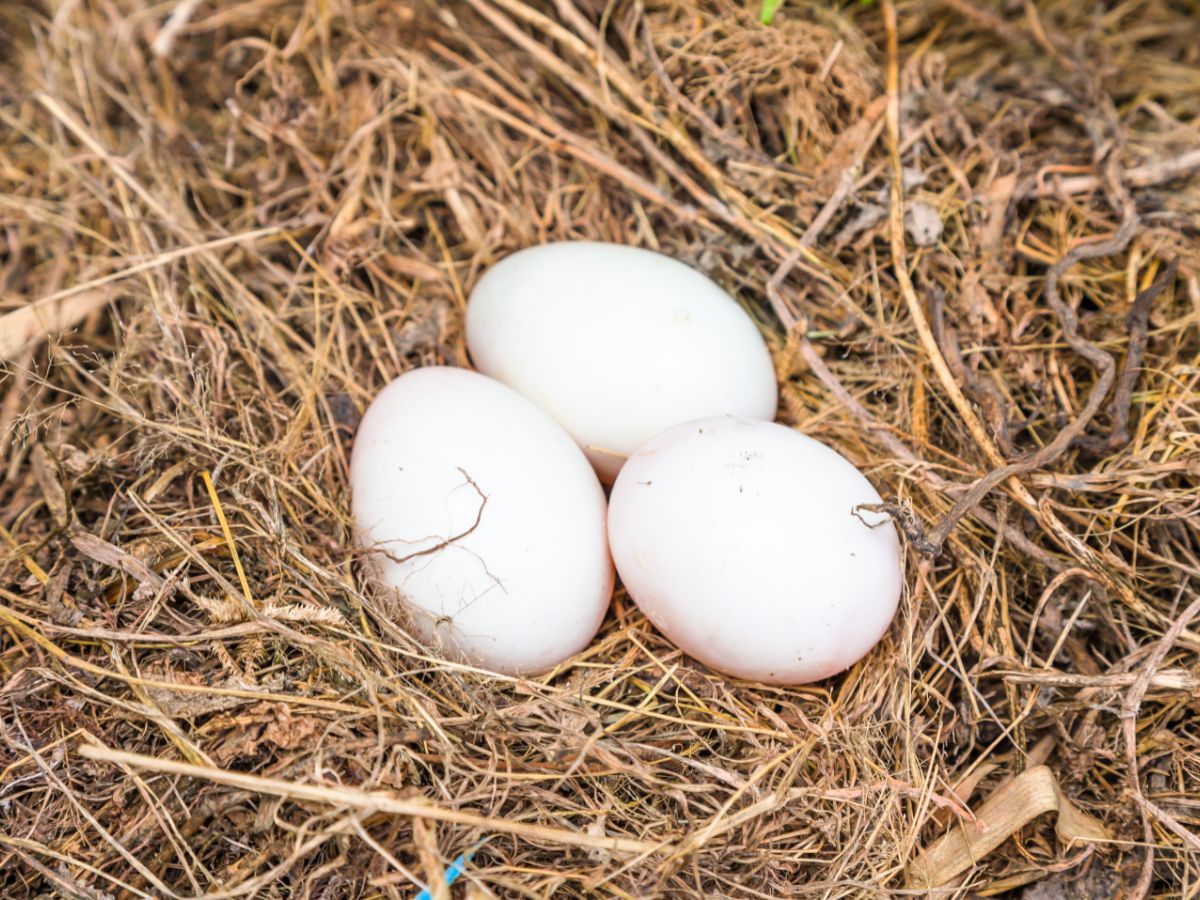Chickens will eat feathers for many reasons. There are calm, reasonable explanations and those that are like something straight out of a horror movie! Chickens may seem harmless; however, they can become extremely violent if their living conditions are compromised. So, why do chickens eat feathers, and how do you stop it?
Chickens eat feathers when their diet is too low in protein, when they are stressed if they feel threatened due to boredom, when their coop environment is overcrowded, to establish hierarchy and pecking order, when they are overexposed to excessive light, etc.
Suppose you notice that your chickens are eating feathers and want to find out why you’ve come to the right place. This article will discuss the reasons why chickens eat feathers and various solutions you can try to stop it.
Contents
Why Are Your Chickens Eating Feathers?
Seeing your beloved chickens plucking and eating feathers can be quite disturbing. Still, you can rest assured that these are normal behavioral reactions to certain environmental conditions and other situations. To set your mind at ease, we have listed some of the most common reasons chickens eat feathers and what you can do to prevent it in the future.
The main reasons chickens eat feathers include;
1. You’ve Mixed Chickens Of Various Sizes, & Ages
Introducing hens of all sizes and ages into the same flock can provoke fights by upsetting the well-established pecking order. One more explanation for this behavior is curiosity. A chicken’s curiosity can lead to the initial few weeks of toe picking, which can become more serious problems like plucking each other’s feathers out and eating them!
Solution
Refrain from placing chickens of various sizes, colors, and ages in the same pen. They are not like two birds of a feather when they are together! Prevention is better than cure; they will act out if you mix them all under one roof.
2. Over Exposure To Light
Yes, you read that right! Overexposure to light is a common cause of stress in chickens, which is one of the reasons they eat feathers. Exposing chickens to excessive light, which for chickens is anything over 16 hours, increases their stress levels. When stressed or anxious, they will either start pulling out their feathers and eating them or pluck the closest chicken they can find.
Solution
40-watt or lower is the safest range for white light bulbs. Bigger infra-red or red bulbs are the safest alternative if you need them for heating purposes. Install bulbs with a wattage of 15-25 above the feeders and waterers for rearing hens of 12 weeks and older.
3. The Chickens Are Molting
To refresh its appearance, a chicken will molt its feathers once a year. The impact will vary depending on each chicken. A hen’s molt can range from 1 to 4 months, depending on the breed. Chickens molt for several reasons, but one major one is so that they can make way for brand new feathers.
Doing so prepares them for the upcoming winter season. Nearly 85% of a chicken’s feather’s composition is protein. During a molt, a chicken’s protein requirements rise because they must use it to make new feathers.
Solution
Nutritionally, feathers are a good source of protein for chickens. It is not unusual for a hen molting to pick up feathers from the floor and consume them. Therefore, there isn’t much you can or need to do. Feathers are fine for them to eat, but they also supplement them with some live crickets, mealworms, or high-protein chicken feed.
4. The Chickens Are Stressed
Decreasing egg production, feather loss, and feather eating are 3 obvious symptoms in a flock of stressed chickens. Early identification of stressors and active management increase resilience. The following can cause stress;
- Some chickens may be bullied.
- The Coop Is Overcrowding
- The roosting bars are situated too close to each other
- There is an insufficient supply of water and food available to them.
- They are suffering from extreme temperatures
- They are feeling threatened by predators
- Unsanitary poultry pen
Solutions
- Bullying – Isolate the bullying chickens from the bullied chickens.
- Overcrowding – Allow at least 2 to 4 square feet of space per chicken indoors and create an outside area of at least 8 to 10 square feet.
- Roosting Bars – Space the roosting bars
- about 12″- 15″ apart.
- Water & Food Supply – On hot days, chickens will need twice as much cool, clean water than usual, and you should feed them 1/4 lb. of chicken feed a day (about 1/2 cup of pellets).
- Extreme Temperatures – Ensure adequate airflow and sufficient protection from the elements.
- Predators – Perform regular inspections and maintenance on the chicken coop to ensure that all entry points are secure so predators cannot get to the chickens.
- Dirty Environment – Clean the chicken coop thoroughly once a week.
5. Nesting Boxes Are Too Few & Overexposed To Light
Chickens have a natural tendency to deposit their eggs in protected areas where they will be less likely to be disturbed by humans or other dangers. Chickens may become anxious if exposed to excessive light near their nesting boxes, which can destroy their sense of security.
Solution
At a minimum, you should have one nest for every 5 hens and keep any nearby lights dimmed. Not doing so can lead to problems with vent feather-pecking and feather eating. Hens can chill out in their nesting boxes before laying their eggs.
It has been shown through scientific research that chickens that have access to and really use their nesting boxes produce fewer stress hormones after they’ve laid their eggs.
6. Boredom
Bored chickens are those in coops with little space or environments where the chickens are not allowed to free range.
Bored chickens are more prone to exhibit behavioral problems, such as feather eating (their own and their fellow “friends”). If you do not take steps to prevent it, boredom could lead to egg eating, bullying, flock fights, and vicious feather plucking!
Solutions
- Aim to spend more time interacting with the chickens in the fresh air.
- Before you dispose of your old Christmas trees and Halloween pumpkins, put them in the chicken coop for the chickens to peck at and play with.
- Do not confine your chickens to a cage. Allow them to free range.
- Enhance your chickens’ “bath time” by providing them with a fresh dust bathing spot.
- Give the chickens some chicken fodder and a few mealworms.
- Hang vegetable and fruit skewers inside the chicken coop.
- Install more swings and perches.
- Mount shatter-proof mirrors within the coop to entertain the chickens.
Conclusion
All of us care about the well-being of our chickens. Chickens may eat feathers for several reasons, and it’s vital to be aware of this. The most crucial step is figuring out what triggers this behavior in hens so you can eliminate the causes to stop it once and for all!




